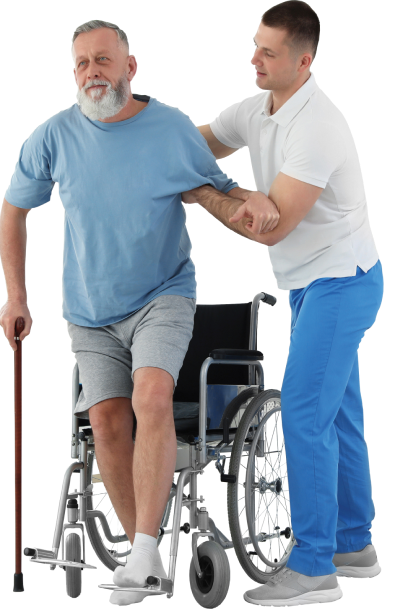As part of Tuesday's announcement, Amazon said it plans to open more than 100 new Whole Foods Market stores over the next few years.
WASHINGTON — Amazon announced Tuesday it plans to shutter its Amazon Fresh and Amazon Go brick-and-mortar stores.
"While we've seen encouraging signals in our Amazon-branded physical grocery stores, we haven't yet created a truly distinctive customer experience with the right economic model needed for large-scale expansion," the company wrote in a blog post.
Some of the Fresh and Go stores will be converted into Whole Foods locations, according to the company. Amazon said Tuesday it plans to open more than 100 new Whole Foods Market stores over the next few years.
There are currently 14 Amazon Go cashier-less convenience stores and more than 50 Amazon Fresh grocery stores, according to online listings.
While Tuesday's announcement is a major shift in Amazon's grocery strategy, the company said it isn't ditching the idea of brick-and-mortar stores completely.
"We will also continue inventing on behalf of customers to develop a mass physical store format that brings customers distinctive selection, value, and convenience. Over the coming years, we plan to introduce new store concepts that we think customers will be excited about," the company said.
Earlier this month, Amazon announced plans to open its largest-ever retail store. The 230,000-square-foot mega-store outside Chicago would be large enough to fit two average-size Target stores under its roof, according to the Wall Street Journal. The outlet report that more big-box stores are in the works.
"Through it all, our goal remains: to make grocery shopping easier, faster, and more affordable for customers," Amazon said in Tuesday's blog post.
Amazon Fresh stores closing: Full list of current locations
Here is a current list of Amazon Fresh stores, according to Amazon's website.
Cerritos: 11340 South St, Cerritos, CA 90703
Citrus Heights: 5425 Sunrise Blvd, Citrus Heights, CA 95610
Encino: 16325 Ventura Blvd, Encino, CA 91436
Elk Grove: 7530 Elk Grove Blvd, Elk Grove, CA 95757
Fontana: 16188 South Highland Drive, Fontana, CA 92336
Fountain Valley: 18100 Brookhurst St, Fountain Valley, CA 92708
Fullerton: 1100 S Harbor Blvd, Fullerton, CA 92832
Huntington Beach: 6911 Warner Ave, Huntington Beach, CA 92647
Irvine: 13672 Jamboree Rd, Irvine, CA 92602
Ladera Heights: 6855 S La Cienega Blvd, Los Angeles, CA 90045
Murrieta: 40485 Murrieta Hot Springs Rd, Murrieta, CA 92563
North Hollywood: 5101 Lankershim Blvd, North Hollywood, CA 91601
Northridge: 19340 Rinaldi St, Northridge, CA 91326
Pasadena: 3425 E Colorado Blvd, Pasadena, CA 91107
Poway: 14837 Pomerado Rd., Poway, CA 92064
Roseville: 6780 Stanford Ranch Road, Roseville, CA 95678
Torrance: 21035 Hawthorne Blvd, Torrance, CA 90503
Woodland Hills: 6245 Topanga Canyon Blvd, Woodland Hills, CA 91367
Upland: 235 E Foothill Blvd, Upland, CA 91786
Arlington Heights: 325 E Palatine Road, Arlington Heights, IL 60004
Bloomingdale: 404 W Army Trail Rd, Bloomingdale, IL 60108
Morton Grove: 6939 Dempster St, Morton Grove, IL 60053
Naperville: 3116 S Rt 59, Naperville, IL 60564
Norridge: 4211 N. Harlem Ave, Norridge, IL 60706
North Riverside: 7201 West 24th St, North Riverside, IL 60546
Oak Lawn: 4031 W 95th St, Oak Lawn, IL 60453
Schaumburg: 16 A East Golf Rd, Schaumburg, IL 60173
Gaithersburg: 15790 Shady Grove Rd, Gaithersburg, MD 20877
Glen Burnie: 6711 Ritchie Highway, Gaithersburg, MD 21061
Silver Spring: 12263 Prosperity Dr, Silver Spring, MD 20904
Eatontown: 137 NJ-35, Eatontown, NJ 07724
Lodi: 2 Memorial Drive, Lodi, NJ 07644
East Setauket: 4054 Nesconset Highway, East Setauket, NY 11733
Broomall: 2940 Springfield Rd, Broomall, PA 19008
Warrington: 389 Easton Rd, Warrington, PA 18976
Spring Garden: 555 Spring Garden Street, Philadelphia, PA 19123
Alexandria: 3801 Richmond Hwy, Alexandria, VA 22305
Fairfax: 10360 Fairfax Blvd, Fairfax, VA 22030
Falls Church: 5811 Crossroads Center Way, Falls Church, VA 22041
Franconia: 7005 Manchester Blvd, Franconia, VA 22310
Factoria: 3901 Factoria Square Mall SE, Bellevue, WA 98006
Nashville Warehouse - Pickup and Storefront: 410 Harding Industrial Dr, Nashville, TN 37211
Amazon Go stores closing: Full list of current locations
Amazon Go #INY4: 150 E 53rd Street, New York, NY 10022
Amazon Go #ILS4: 13209 39th Ave SE, Mill Creek, WA 98012
Amazon Go #IWA2: 15518 Meridian Ave, Puyallup, WA 98375
Amazon Go #ISE1: 2131 7th Ave, Seattle, WA 98121

 951.292.9777
951.292.9777




 Service Areas
Service Areas























